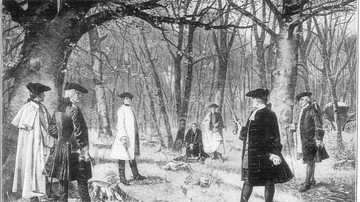Review

| Rating: | |
|---|---|
| Title: | Empire's Mistress, Starring Isabel Rosario Cooper |
| Author: | Vernadette Vicuña Gonzalez |
| Audience: | General Public |
| Difficulty: | Easy |
| Publisher: | Duke University Press Books |
| Published: | 2021 |
| Pages: | 232 |
This book is an experimental approach that skillfully navigates a research topic where archival and other sources are fragmented. Gonzalez uses engaging narration paired with broad research to give agency to a figure whose life was previously shadowed by colonialism. "Empire’s Mistress" would be an insightful read for the general audience or advanced undergraduate students.
Born in January 1914, Isabel Cooper grew up in the Philippines and supported herself through working in the entertainment industry, performing, singing, and acting since her early teenage years. She earned fame when acting in the first Philippine onscreen kiss when she was only 12. Most people today know her as the mistress of the American General Douglas MacArthur, who served in the Philippines during the Second World War. Vernadette Vicuña Gonzalez's new book Empire's Mistress attempts to separate MacArthur's life from Cooper's so to portray her as an individual, rather than a dependent, with her own goals, dreams, and challenges. Through Gonzalez's narration, readers also experience the heavy weight of imperialism that the Philippines and Southeast Asia experienced.
Because archival sources on Cooper are much scarcer than those on MacArthur, to research this book, Gonzalez traveled to Los Angeles, Washington, D.C., Manila, and many other locations to gather information. Yet, this was still insufficient to piece together all the gaps in the archive. Gonzalez thus uses a creative alternate chapter format when organizing the book. While the chapters altogether advance chronologically, some chapters are traditional history writing, and a few chapters, distinctly marked with italic chapter titles, are Gonzalez's imagination. Gonzalez bases these chapters of imagination on fragmented archival materials to fill in what happened to Cooper during those times of her life.
To venture into Cooper's emotional and spiritual development as well as how imperialism's power conflict behaved through the lens of personal intimacy, Gonzalez puts research focus especially on the letters exchanged between her and MacArthur. This correspondence shows that Cooper is a strong character who knows how to carry, defend, and fight for herself. When MacArthur brought her from the Philippines to the U.S. in 1930, MacArthur first placed her secretly in a hotel in Washington, D.C., due to his fear of this affair destroying a righteous persona he tried to create. After realizing that hiding the affair was no longer feasible, MacArthur gave her $15,000 to return to Manila. Cooper did not return to the Philippines and moved to the Midwest of the U.S. instead.
Gonzalez makes a complicated case for power during imperialism. Many times, it is not only the imperialist who yields absolute power over the colonized. However, Cooper, like many Philippine people who came to the U.S. in the 1920s and '30s, was strong and self-determined. They knew how to actualize their own power against the imperial machine. When MacArthur filed a libel suit against a journalist, Drew Pearson, Pearson invited Cooper as a witness. This made MacArthur drop the suit immediately. Through Cooper, Gonzalez opens the conversation by researching broad themes like war and imperialism under the microscopes of personal intimacy, family, and romance.
Gonzalez is Professor of Ethnic Studies at the University of California, Berkeley. She provides readers with numerous archival images throughout the book, greatly helping the readership better contextualize Cooper's life. Because of Gonzalez's approachable and conversational writing style, this book is the most suitable for interested general readers and undergraduate students looking for an introduction to the history of imperialism. Some notable further reading titles include The American Colonial State in the Philippines: Global Perspectives (2003), edited by Julian Go and Anne L. Foster, and David Brody's Visualizing American Empire: Orientalism and Imperialism in the Philippines (2010).
Gonzalez's work belongs to a trend in history research methodology that uses counterfactuals, or fiction, for the blanks in archives. This trend is constantly under scrutiny and debate regarding the appropriateness and scale of applying a researcher's own imagination to scholarly history work. In this book, Gonzalez's speculation acts more like an artistic supplement rather than an academic argument.
Cooper died in 1960 in Los Angeles; the coroner's report listed drug overdose, but the final investigation report could not be found.
About the Reviewer
Cite This Work
APA Style
Zou, Z. (2024, May 27). Empire's Mistress, Starring Isabel Rosario Cooper. World History Encyclopedia. Retrieved from https://www.worldhistory.org/review/453/empires-mistress-starring-isabel-rosario-cooper/
Chicago Style
Zou, Zhihui. "Empire's Mistress, Starring Isabel Rosario Cooper." World History Encyclopedia. Last modified May 27, 2024. https://www.worldhistory.org/review/453/empires-mistress-starring-isabel-rosario-cooper/.
MLA Style
Zou, Zhihui. "Empire's Mistress, Starring Isabel Rosario Cooper." World History Encyclopedia. World History Encyclopedia, 27 May 2024, https://www.worldhistory.org/review/453/empires-mistress-starring-isabel-rosario-cooper/. Web. 24 Apr 2025.




